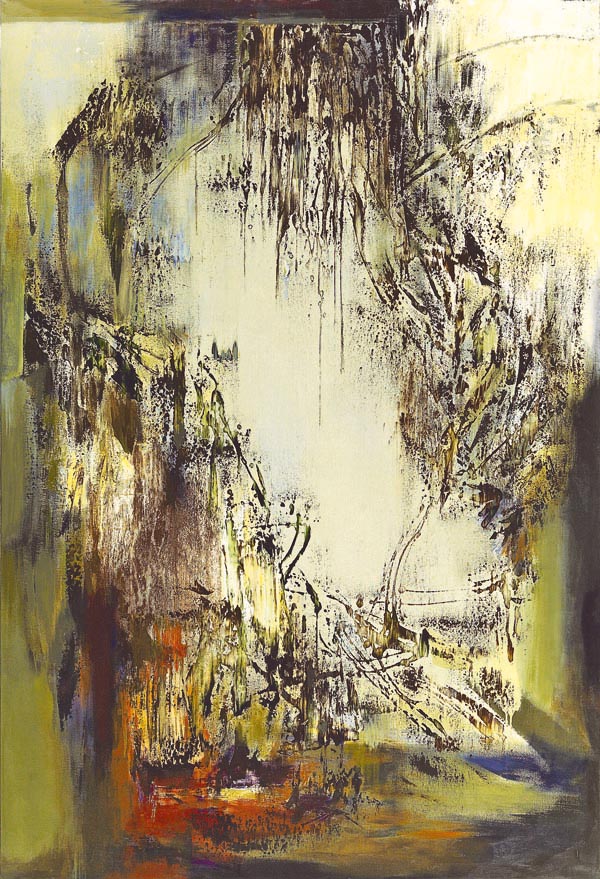Yang Chihung (1947~) comes from Taoyuan. He learned from famous senior masters such as Liao Chi-chun and Yang San-lang among others. He moved to America in 1979 to develop his talents with famous modern artists from all over the world, and became the first Chinese artist to attain the American National P. S. I award in 1984. Yang has a cloud of plants in his atelier in New York, which are like a small universe; they show the vicissitude of life in different phases. Ordinary people might think taking care of plants is just taking care of plants, but what Yang gets from this daily routine is not only prosperity and decay of plants, still further, he sees how a life breaks out and the imagination left behind from appearance of plants in every stage, which render moving of time to his art that feels lively and vivid during the course of time lapsing.
Yang has been devoted to pursuit of light and atmosphere. His works are very elegant with clear arrangements and flexible, natural touches, which counts as a direct reaction of an artist who faces infinite creatures of the Great Nature and also his personal feelings and aesthetic requirement on myriads of things around, every single blade of grass and plant; reflections on all human emotions, and Yang hopes to impress his observation of the lapsing time and engrave it with his paintbrush. From this piece of work "December" we seem to feel the lyric and low-key style of Yang. It doesn't have quantized plant images, but portrays slim and slight blades and branches, in which Yang used the dripping wet of acryl pigment to express the cold wind of winter, the flying snow in the air. The whole piece of work is full of motions, rhythms and a touch of insecurity. Yang made his emotions so low in there and wanted to show no evidences of personal feelings, however, the scattered blades, snow and rain, branches that seem falling down in the wind all represent "an accident" that makes life fail to remain its original tranquil state. For all that, Yang depicted the situation in a very moving way, so sweet poetic feelings pervade there.
